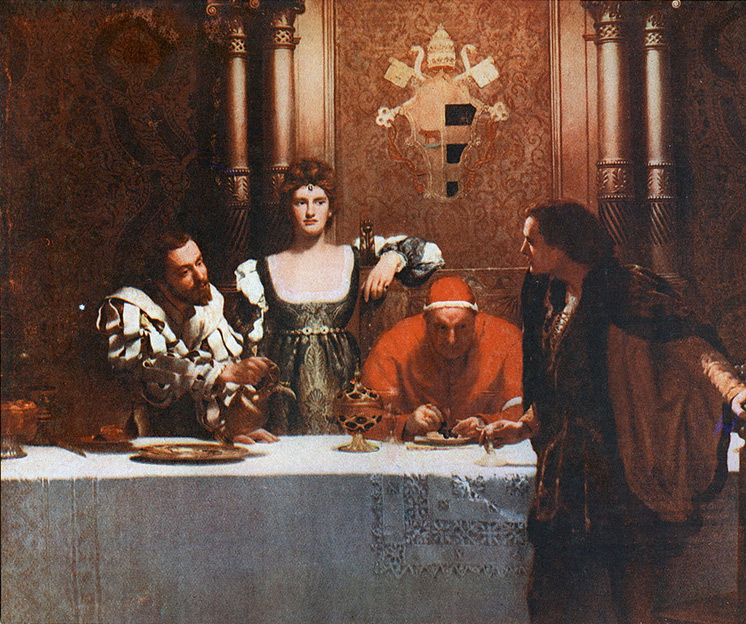Yang, K.-C., Pierri, F., Hui, P.-M., Axelrod, D., Torres-Lugo, C., Bryden, J., & Menczer, F. (2020). The COVID-19 Infodemic: Twitter versus Facebook. ArXiv:2012.09353 [Cs]. http://arxiv.org/abs/2012.09353
- Mar 2021
- Oct 2020
-
icla2020b.jonreeve.com icla2020b.jonreeve.com
-
Who that person might be, I couldn’t guess then, and can’t guess now.
This is an interesting bit of emphasis. Is she not, in one way or another, under the control (whether Franklin knows it or not) of Mr Franklin? Is this what Collins is suggesting?
-
- Apr 2017
-
-
Borgia-like
The House of Borgia was an Italo-Spanish family who rose to power underhandedly during the Renaissance. Although they influence two popes being elected, they were suspected of many murders by poisoning, as this painting by John Collier "A glass of wine with Ceasar Borgia" shows the hesitancy in the young man about to have his wine glass filled with possibly poisonous wine.
 Sara Willis here relates to Thoreau's disdain for those who seek to destroy their opponents and obtain a majority who makes all of the important decisions.
Sara Willis here relates to Thoreau's disdain for those who seek to destroy their opponents and obtain a majority who makes all of the important decisions.
Tags
Annotators
URL
-
- Feb 2017
-
static1.squarespace.com static1.squarespace.com
-
But this is the criticism of pedants only. True criticism is a lib-eral and humane art.
This is still a complaint I hear a lot regarding academia--that we have fallen into criticism as a mode of deconstruction and not of information-gathering or improvement. I have always found that it sounds a little like an old man muttering "in my day, we weren't so negative about the canon!" and then being super angry and offended when you tell him his novel is pretty racist. I can take the point that criticism should not be solely destructive to the point of belittling otherwise valuable texts for the attention one gets for criticizing the popular, but it seems suspicious to say "criticism should only do this thing that I* want it to do!"
*This mental image might exist because I have found that it is mostly older (white) male academics who don't like their students criticizing the canon. That's just my personal experience, though.
-
met with nearly universal approval and a pedagogy that won nearly universal application
Well that's enough to make me suspicious right out of the gate.
-